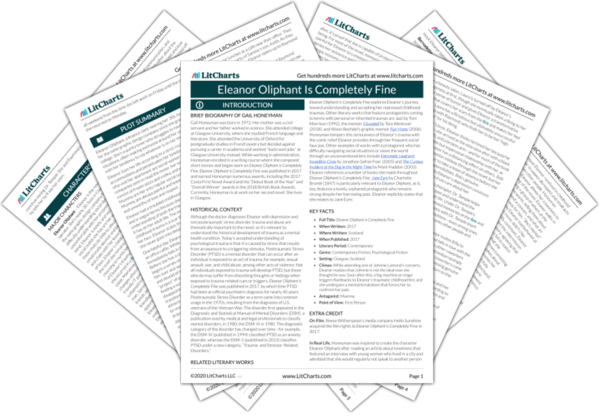Eleanor frequently says whatever is on her mind because she doesn’t consider how her thoughts will affect others. In this instance, Raymond finds her remark about the old man being a drunk rude and insensitive. However, this incident shows that once Eleanor starts reaching out to others, she becomes better able to understand them. Eleanor’s cruel remark about the old man is hypocritical because she herself has a drinking problem, and her disgust with him might be seen as a projection of her disgust toward herself. Lastly, Eleanor’s cruel, judgmental attitude mirrors Mummy’s treatment of Eleanor, illustrating the “unbreakable” bond that Mummy spoke about on the phone earlier: Eleanor demonstrates how connected she is to Mummy when she unwittingly embodies Mummy’s cruelty toward others.
